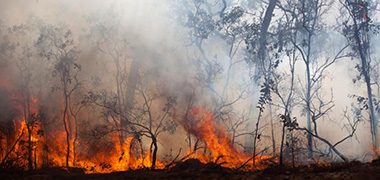
Courses for beginners
There are 1 courses available in Adelaide South Australia for beginner learners with no prior experience or qualifications.
Professional Certificate of Competency in Carbon Capture
Online
3 months
$1,581
- There are no mandated entry requirements.
 Engineering Institute of Technology
Engineering Institute of Technology
Courses for experienced learners
There are 19 courses available in Adelaide South Australia for experienced learners with prior experience or qualifications.
11130NAT
Certificate IV in Environmentally Sustainable Management
Online
12 months
Unavailable
- There are no mandated entry requirements.
 Australian College of Business Intelligence
Australian College of Business Intelligence
CPP40919
Certificate IV in Waste Management
Blended, On Campus
12 months
Unavailable
- There are no mandated entry requirements.
 Academy Green Learning
Academy Green Learning
AHC50422
Diploma of Horticulture Management
On Campus
12 months
Unavailable
- There are no mandated entry requirements.
 Ironwood Institute
Ironwood Institute
CPP41119
Certificate IV in Home Energy Efficiency and Sustainability
Online
12 months
$4,530 - $4,585
- There are no mandated entry requirements.


AHC40920
Certificate IV in Conservation and Ecosystem Management
Online
12 months
Unavailable
- There are no mandated entry requirements.
 Central Regional TAFE
Central Regional TAFE
Further reading


3 online courses that can help you tackle climate change
14th January 2020
